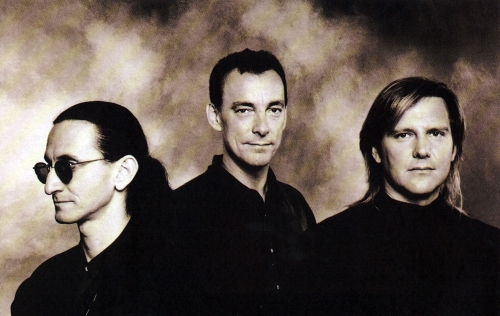|
Listen to this post:
|
“Is this your first Rush concert?”
“Yes, I’m so excited.”
Rich and Brian had been talking about this for months. Like geeky hard rock fans worldwide, they had long been in awe of Neal Peart’s furious and precise drumming, Geddy Lee’s dancing bass and soaring vocals, and the rich textures and screams of Alex Lifeson’s electric guitar. This was their first Rush concert, and they crowded towards the entrance with thousands of other fans, many decked out in concert t-shirts.
But Rich and Brian had an edge over nearly all of them: backstage passes. “I can’t wait to meet him,” said Rich.
“Who?”
“Rush.”
Brian gave him a strange look but said nothing.
Rich continued, “I want to ask him how he came up with the lyrics for 2112, how many classical guitar lessons he took, and how he keeps his voice in shape.”
“You mean, you want to ask Neal the first question, Alex the second, and Geddy the third?”
“Sure – they’re all Rush. But I do think that Rush is the greatest rock musician ever.”
“Rich… Rush isn’t a musician. Rush is a band.”
“Yes, I know, but they play so well together, it is as if they were one musician – one musician playing three instruments at once – sometimes four, when Geddy uses the bass pedals and plays keyboard too. Man, Rush is the best. He’s so talented.”
“You mean, they’re so talented, right?”
“Strictly, yes. I think Rush is a real thing, with three musicians for parts, but it is not literally a person, much less a musician. But we can say, without confusion, that Rush plays a mean guitar, is an awesome drummer, and sings in a high, spacey way.”
“No, we can’t! If you said that, say, to your little brother, you would only confuse him. Remember, he thinks Pink Floyd is a guy whose first name is ‘Pink!’”
The concert was a memorable one, and Rich and Brian much enjoyed their brief backstage meeting with their heroes. To Brian’s relief, faced with the band itself, Rich seemed to drop his strange speculations, and only addressed questions to one musician at a time. Perhaps he realized that Rush itself would have no voice to reply, nor any thoughts to express. “A band,” thought Brian to himself, “is made of musicians, but is not itself a musician.”
Surely Brian’s last point is correct. We may disagree about whether the band Rush a thing in its own right or merely a collection of things, but all should agree that it is not a musician. And even if it is a thing, just because it is composed of musicians, just because it has musicians as parts, it doesn’t follow that it is a musician itself. It isn’t. When Rush is on stage, only three musicians are playing, not four – even when four instruments are being played.

This was a fun post, and the central idea is neat (not the least because Rush is such a well-coordinated band that it is helpful to think of them as one musician). I read it out loud to a friend and it prompted an interesting conversation!
Pingback: Rush 2.0 and Rush 3.0 (Dale) » trinities
For some interesting (science-fiction) speculations to the contrary, see Theodore Sturgeon’s novella ‘More Than Human’ and his short story ‘Die, Maestro, Die!’ In both of these stories (but more explicitly in the former than in the latter), Sturgeon explores the question of whether a person could have other persons as proper parts. In the introduction to volume 6 of Sturgeon’s complete stories, David Crosby (of The Byrds and Crosby, Stills, Nash, and Young) discusses the influence of these stories on how some classic rock bands thought of themselves. Of course, I doubt that any of the band members thought their band was literally a person (except perhaps while on drugs), but the fact that they found the metaphor helpful might have some relevance to your discussion here.
Comments are closed.